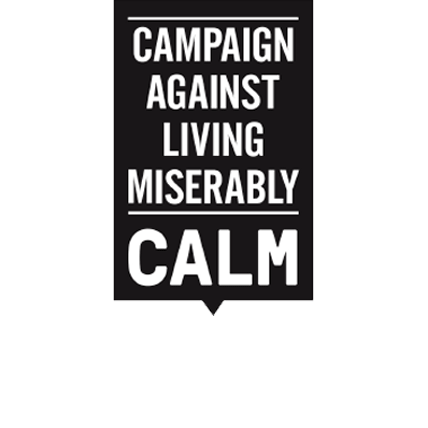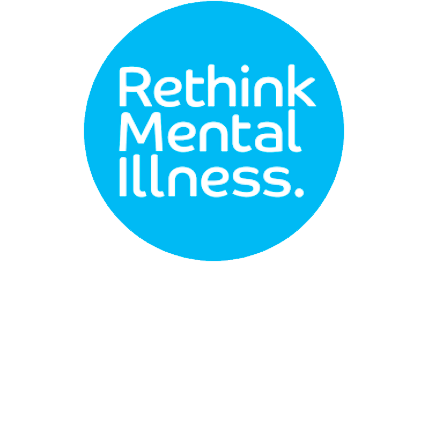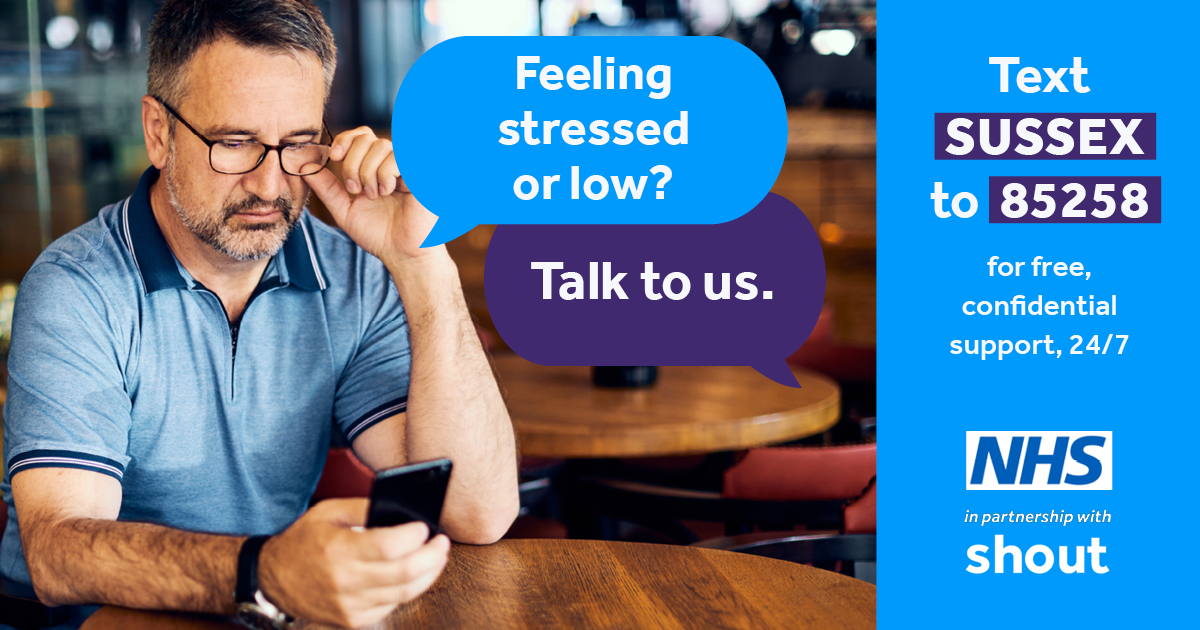Are you concerned about someone you know?
If you're worried that someone you know may be considering suicide, try to encourage them to talk about how they are feeling. Don’t worry about having answers. Just listening to what someone has to say and taking it seriously is the best way to help.
Asking them a direct question about whether they have thought about suicide can also make all the difference. Some people think that asking someone whether they are having suicidal thoughts will put the idea in their head. This is a MYTH. Evidence shows that asking the direct question actually opens the door and gives them permission to speak about it.

Be alert – Not everyone who thinks about suicide will tell someone, but there may be warning signs.
Be honest – Tell the person why you're worried about them, and ask about suicide. Tell them you want to know how they really are, and that it’s OK to talk about suicide.
Listen – Just listening is one of the most helpful things you can do. Try not to judge or give advice.
Get them some help – There is a range of help and useful advice available.
Take care of yourself – You may find it helpful to discuss your feelings with another friend, or a confidential service.

These will show up differently in different people and often are not easy to spot. Such as a cheeriness which may seem fake to you. Or they may joke about their emotions. Such as saying something quite alarming that is disguised as a joke.
Don’t ignore your gut feeling if you are concerned about someone. If you have a feeling that someone you know isn’t behaving as they normally would – they seem out of sorts - then it’s okay to trust and act on these thoughts. Some people won’t be open about how they are feeling.
Many people also try to seek help before attempting suicide by telling other people about their feelings. If someone tells you about how they are feeling don’t ignore them.

- Becoming anxious
- Being more irritable
- Being more confrontational
- Becoming quiet
- Having mood swings
- Acting recklessly
- Sleeping too much or too little
- Not wanting to be around other people
- Avoiding contact with friends and family
- Having different problems with work or studies
- Saying negative things about themselves

- I want to give up
- No one would notice if I wasn't here
- I hate myself

A person may be more likely to attempt suicide if they are:
- Threatening to hurt or kill themselves
- Talking or writing about death, dying or suicide
- Preparing to end their life. Such as storing up medication, or
- Putting affairs in order. Such as giving away belongings or making a will

You may feel uncomfortable talking about suicidal feelings. You may not know what to say. This is entirely normal and understandable.
Remember that you don’t need to find an answer, or even to fully understand why they feel the way they do. Listening to what they have to say will at least let them know you care.

- Let them know that you care about them and that they are not alone.
- Empathise with them. You could say something like, "I can't imagine how painful this is for you, but I would like to try to understand."
- Don't be judgemental, criticise or blame them.
- Repeat their words back to them in your own words. This shows that you are listening. Repeating information can also make sure that you have understood them properly, ask about their reasons for living and dying and listen to their answers.
- Try to explore their reasons for living in more detail, ask if they have felt like this before. If so, ask how their feelings changed last time.
- Reassure them that they will not feel this way forever.
- Encourage them to focus on getting through the day rather than focusing on the future.
- Ask them if they have a plan for ending their life. Ask what the plan is?
- Encourage them to seek help that they are comfortable with. Such as help from a doctor or counsellor, or support through a charity such as the Samaritans.
- Follow up any commitments that you agree to.

Ask them directly:
- Are you thinking about suicide?
- Are you having thoughts of ending your life?
It is better to address the person’s feelings directly rather than avoiding the issue. Asking about suicide won’t make it more likely to happen.

- Do not leave them on their own. Stay or find someone to be with them.
- Remove anything they could use to take their own life e.g. tablets, sharp objects, rope etc.
- Seek professional help straight away.
- To "cheer up", "pull themselves together", "man up" or "snap out of it".
- That they have no reason to feel like that or that they shouldn't feel like that.
- That they should be grateful for having a good life, or that they are being silly.

Call NHS 111 and select the mental health option, which will offer support and support and get help for the person if needed. For callers whose first language is not English, a telephone interpreter can be arranged for other community languages, by phoning the helpline and letting them know the language needed.


is a national charity that offers emotional support, advice and information to men who are feeling suicidal and their families. They also provide useful guidance about what to do if you are worried about someone.

is a charity that helps people affected by mental health issues and illness to improve their lives. They provide a wide range of services including very useful and practical guidance on how to support someone that is having suicidal thoughts. You can access the guidance here.

is a 24/7 crisis text service available for times when people feel they need immediate support. A trained Crisis Volunteer will chat to you via text - just text SUSSEX to 85258 to access support at any time.
The service is designed to help individuals to think more clearly and to take their next steps to feeling better. They can help with urgent issues such as: suicidal thoughts, abuse or assault, self-harm, bullying, and relationship challenges.

is a national charity that offers emotional support for people who are distressed. They are available day or night, for anyone who’s struggling to cope, who needs someone to listen without judgement or pressure. They also provide useful guidance about what to do if you are worried about someone.

A 24/7, free and confidential text messaging service for people in Sussex who are experiencing a challenging time with their emotional wellbeing or mental health. Delivered through the national charity SHOUT, the service offers real-time support to people who are struggling, and help get them to get to a calmer place.
Just text SUSSEX to 85258

is an alliance of organisations working together to enable people with mental health support needs, and their carers, to improve their mental health and wellbeing. They provide a range of services to support people with their mental health and wellbeing in Adur, Bognor, Chichester, Crawley, Horsham, Littlehampton, Midhurst, Mid Sussex and Worthing.

is a network of local services committed to supporting good mental health and wellbeing in Brighton and Hove. If you need support, or know somebody that does, you can call and them and they will help you navigate and access services. UOK includes the services offered by Mind in Brighton & Hove.

is a service for anyone in Sussex who has been affected by a suicide or possible suicide, however long ago. The service offers a single point of contact which can signpost you to a range of different support.

is a rapid assessment service providing an urgent response service to the people of Brighton & Hove when they feel they are in a mental health crisis and are at immediate risk of harming themselves or others.
Referrals can come from individuals themselves or anyone concerned about someone experiencing a mental health crisis. This includes carers, health professionals and the police.
The service is available 24 hours a day, seven days a week.

is a locally funded charity that offers a wide range of practical information, advice and services to support local people deal with mental health issues.

provides a comprehensive list and information about the local support available to people in need of mental health support living in East Sussex.

has information about mental health issues and how to get help and support.

can help give advice about debt and money issues.

provides links to a range of local and national sources of advice.

is a local charity providing support to help people manage their money.

is a mental health service in Brighton & Hove run by and for lesbians, gay, bisexual, trans and queer people with experience of mental health issues. They work to improve the mental health and wellbeing of LGBTQ communities and to make mental health a community concern. If you need support can speak to a MindOut member of staff and/or use their Online Support service. Peer support groups, peer mentoring and counselling are available online and by telephone.
